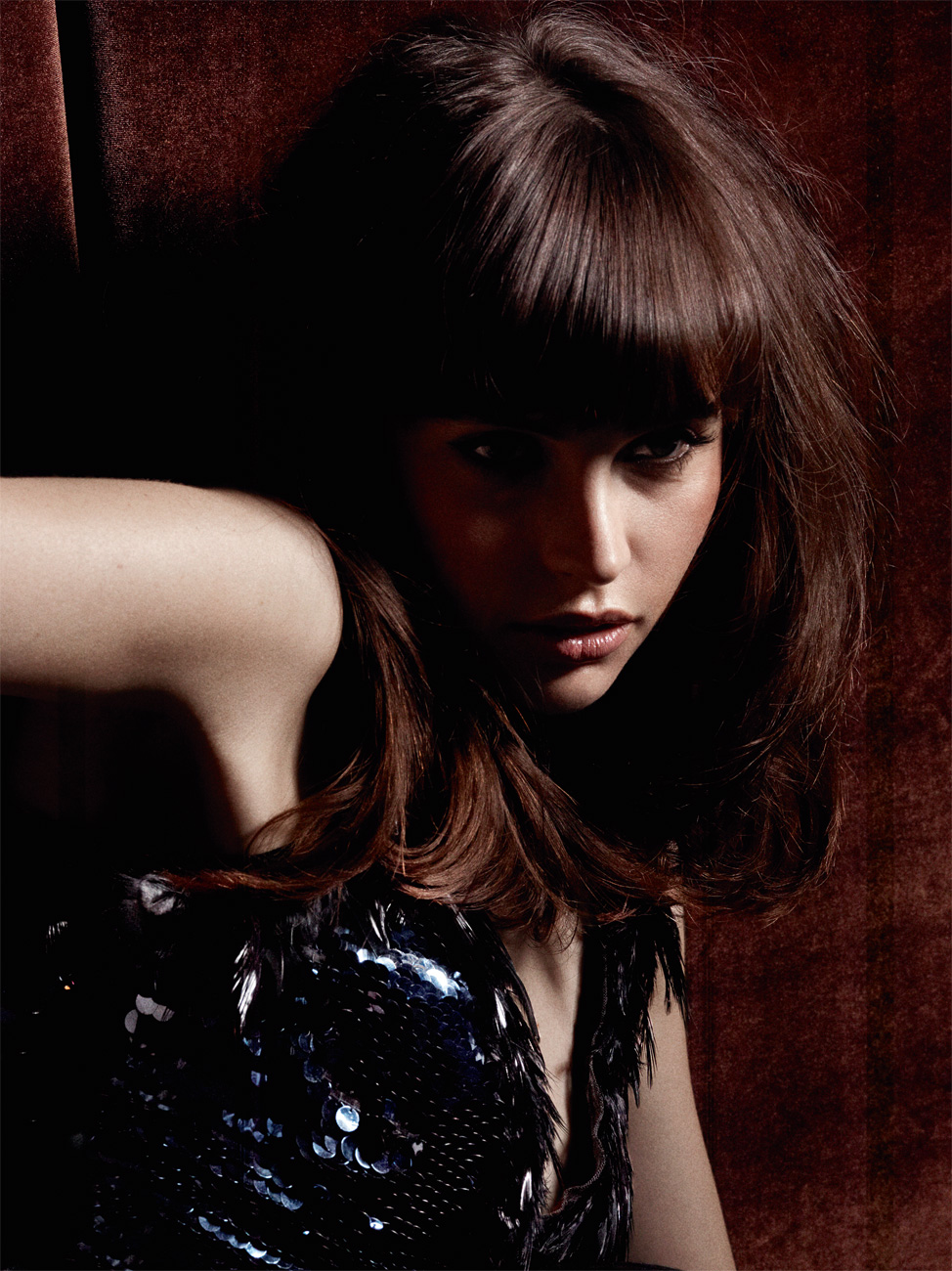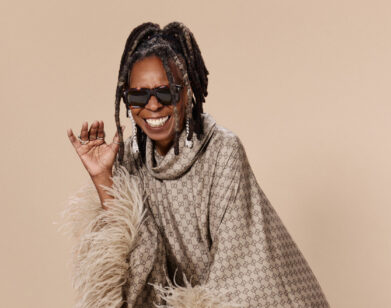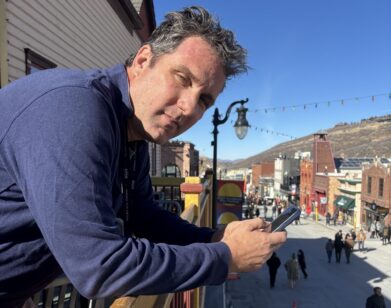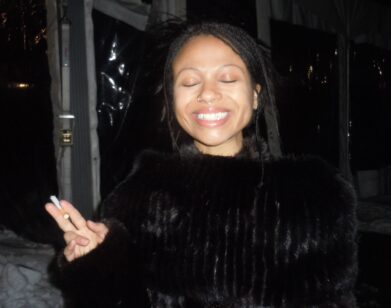Felicity Jones
Felicity Jones may have auditioned for a role in the shower and appeared in a film about vibrators, but the overstimulated, provocation-weary moviegoing public can breathe easy-indie cinema’s next go-to girl is more Audrey Hepburn than sex-crazed tabloid vixen. The 26-year-old British actress’ disarmingly intimate performance in Like Crazy earned her a Special Jury Prize at this year’s Sundance Film Festival. The completely improvised film concerns two college students-one British (Jones), one American (Anton Yelchin)-who are madly in love but separated by visa issues. It’s the first in a series of high-profile projects that Jones appears in this year: the outsider-makes-good comedy Chalet Girl; Hysteria (that vibrator movie), a romantic comedy, opposite Maggie Gyllenhaal and Hugh Dancy; and Page 8, starring Ralph Fiennes and Rachel Weisz.

Raised by her mother in Birmingham, England, Jones started acting at age 11. She first broke out in the U.K. children’s sitcom The Worst Witch, then moved into classy dramas for British TV, including an adaptation of Northanger Abbey, and a film version of Brideshead Revisited (2008). Her ability to pivot from contemporary to classic has served her well: Last year, her roles ranged from the romantic lead in Ricky Gervais’s coming-of-age comedy Cemetery Junction to Miranda in Julie Taymor’s The Tempest opposite Helen Mirren.
In conversation, Jones is relentlessly focused and seems to innately want to keep the lines between the public and private quite separate. And while she does still reside in London, visa issues have not stopped her from regular work trips to Los Angeles, where she was visiting when she spoke about her audition tape, tackling Shakespeare, and her own fish-out-of-water story.
JOHN RYE: How did it feel to win the jury prize at Sundance?
FELICITY JONES: It was a complete shock, and quite strange. I was in London and I got the call at about 3 a.m., so it was slightly surreal. I’ve never won anything for acting before, so it was good to win for something I care about so much.
RYE: Like Crazy was completely improvised. You made up every word of dialogue you spoke, didn’t you?
JONES: Yes. The way [director] Drake [Doremus] works is that we have the initial outline for each scene, and then we just experiment. So the takes are often a half an hour long. You may do 10 to 15 takes. But through that process there’s a distillation. When you first start doing the take, you speak a lot, and there’s a nervousness. But by the end you find the right dialogue. Drake’s obsession is with capturing the moment and for something to come out of the acting that wasn’t expected. In reading the script, that was something I was excited about. It allows you, as an actor, to have complete freedom to explore.
RYE: Is it true that you sent an audition tape that included footage you shot of yourself in the shower?
JONES: Yeah. I actually shot three scenes in my flat, chosen from the script, that I thought would convey the way I wanted to play the character. Filming myself in the shower was just very instinctive. It was a close-up! But I didn’t really think about it then. Only afterwards I thought, He is going to think I’m completely insane. But by that time I’d already sent it.
RYE: How would you describe the characters’ relationship?
JONES: My character, Anna, discovered the person she wanted to be with quite early on. In a world where there are so many options, she made a quick decision. Throughout the film you see someone who is dealing with their one obsession. She can’t give it up. In the initial stages of their relationship, they’re completely besotted with each other. And those initial moments seem to propel the rest of the relationship. It’s as if they’re always trying to get back to that beginning. They start to mythologize their own relationship when they’re changing as people and their lives are getting more complicated. I think it’s a story very much for our generation. It’s about trying to hang on to the truth that you initially have when you’re younger.
RYE: Is any of that in line with your personal experience?
JONES: I think, as an actor, you’re always traveling. There’s a sense of dislocation sometimes from home. Anna’s living in L.A., and she’s left London. So I definitely am tied to that part of her.
RYE: You’re being compared to other hot contemporary British actresses-specifically you’ve been called the new Carey Mulligan. How does that sit with you?
JONES: I’ve always loved Carey’s acting, so it’s a privilege. I think comparisons are always an initial response, because people want to try to brand you. The more you work, the more people can see that you’re something different from what’s come before.
RYE: In early reviews of this film-and in other reviews of your films-it’s more than once mentioned that you “glow” or “light up” the screen. Are you aware of these supernatural physical qualities you possess onscreen?
JONES: No . . . [laughs] Which I think is a good thing. I don’t think, as an actor, you want to be too aware of those kinds of things that you can’t control. You just have to throw yourself into the character and try to tell that person’s story as best you can. The effect that you have in a cinematic way is something I don’t want to be too aware of.
RYE: So there’s no mental switch you turn on where you’re like: “I’m going to glow now”?
JONES: No. But it’s very flattering.
RYE: Was it daunting to play Miranda in Julie Taymor’s version of The Tempest?
I can get on a skateboard and skateboard down the street now. That was something I never thought I’d be able to do. I conquered my fears.Felicity Jones
JONES: It is quite a tricky play, but it’s one of my favorites. It’s fascinating, complicated, apocalyptic. There’s an incredible cynicism, which I really like. It also never comes to any easy conclusion.
RYE: What was it like working alongside Helen Mirren, who plays [a female version of] Prospero?
JONES: Tremendous. Because our characters are so close, we spent a lot of time together. She’s become such a mentor. I just love the way she works-in a very straightforward, un-flashy way-and she achieves great things. The way she behaved was something I wanted to emulate. She’s very calm and she doesn’t ever let how others perceive her get in the way of her work. She’s completely un-jaded.
RYE: In Chalet Girl you play an ex-skateboarding star. Did you have to learn how to skateboard?
JONES: Yes, I learned intensively before I started filming. I’m very excited that I can get on a skateboard and skateboard down the street now. That was something I never thought I’d be able to do. I conquered my fears. There’s a skate park in Notting Hill called Baysixty6. I went there every single day before we started shooting. I’d skateboard and talk to people and take photos of them and of their shoes and their hats. That’s how I started approaching the character. When you’re a skateboarder, or a snowboarder, it affects the way you talk, the way you move, the way you interact with the world and other people. And I was keen to make it as believable as possible.
RYE: So what else do you get to do in the film besides skateboard?
JONES: Snowboard . . . [laughs] I learned that, too, before I started the film. I was doing six-hour training days for two months. Because of the form of the jacket and trousers, it’s amazing what you can get away with in terms of [body] doubles. But I still feel that was the right way to approach it.
RYE: One of your next films is called Hysteria. What is that about?
JONES: That’s a comedy set in Victorian England. And it’s a true story about a man called Mortimer Granville, an Englishman who invented the vibrator. I play Maggie Gyllenhaal’s younger sister. My character is a very prim, slightly stupid young
Victorian woman.
RYE: What appealed to you about that?
JONES: It’s a very funny script. It’s very sharp. It’s quite unusual, the subject matter. And I wanted to play someone who was a bit stupid. I thought it’d be fun.
RYE: What kind of career do you envision for yourself?
JONES: The ideal would be to have a career like Meryl Streep’s or Kate Winslet’s. It’s just unbelievable how they manage to make such incredible choices one after the other. If you could have a career anything like that, then that would be a great thing.
John Rye is a Los Angeles–based writer.







